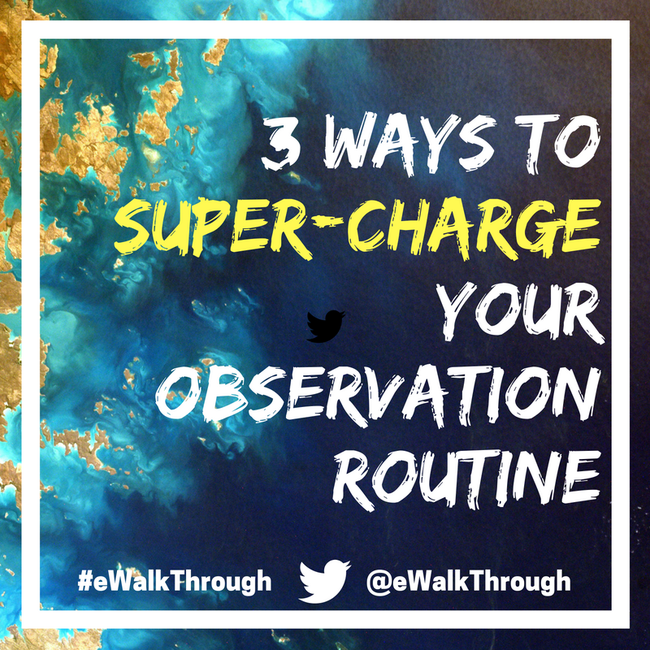 Summer break is a time for relaxing, recharging your batteries, and preparing for a successful new school year. Whether you prefer to stay cool indoors, lounge by the pool, or hangout at the ball field, you might find yourself with a little time to read. These books are my recommendations for your summer reading list! My first recommendation is Lead Like a Pirate, by keynote & author Dave Burgess. On several occasions, Southwest Plains has had the opportunity to host conferences with the enthusiastic Dave Burgess as keynote. His passion for education, teaching, and leadership make him an engaging keynote. Dave is also an accomplished author. He is a fantastic example of continued engagement with his audience, as he is extremely active on Twitter where I’ve come to enjoy his frequent and informational posts. I read this book a few months ago, after seeing it make the rounds on Twitter, and can personally attest to it’s value. The book provides readers with practiced strategies that are easy to understand, implement, and will have a direct effect in your professional life,. I recommend this to anyone - I firmly believe that leadership is not a position or job title, it’s a mindset! Summer break is a perfect time to reflect on the year behind us in an effort to put our best foot forward for the coming school year. My favorite strategy showcased in this book and found on Dave’s blog is called Dropping ANCHORS. ANCHOR is an acronym for Appreciation, Notice the Impact, Collaborative Conversation, Honor Voice & Choice, Offer Support, and Reflect. My second recommendation has to be Collective Efficacy: How Educators’ Beliefs Impact Student Learning by Jenni Anne Marie Donohoo. Over the course of the last year or so, a large portion of my professional development workshops and consulting days have centered around the concept of Collective Efficacy. Leading educator & researcher John Hattie details in his book, Visible Learning, how collective efficacy of educators in a school has the largest effect size on student learning of any other variable. All educators should be working toward the shared goal of increasing collective efficacy within their schools. This book will give you structures & protocols to put in place in the coming year to build this vision. Consider starting a book club or PLC with your fellow educators and begin with this excellent resource! Lastly, I would be remiss if I didn’t mention my own book, #eWalkThrough: Digital System for Instructional Leadership. It’s timely for current eWalkThrough® users, as you can revisit the foundational tenets surrounding your system, reflect on goals and changes needed for the new school year, and recalibrate your thinking. For readers without a digital classroom observation system in place, it’s never been a better time to learn about our process and how it can change your district, buildings, classrooms, and culture. The format of the book makes a great reference, and you’ll be armed with information to share with colleagues about the power of classroom observation. Now I want to know...What is on YOUR reading list this summer? I’m always looking to learn, and would love a new book recommendations! Comment below with your suggestions & let’s get this conversation started!
4 Comments
Does this describe your work and your life at this moment?
Try these strategies to super-charge your observation routine. Commit, stay on track, and you'll head into 2017 with completed observations on all your teachers and observation goals met--maybe even exceeded! #1 - Get tethered to your tablet! It's that simple. Remember, you can conduct walkthroughs on your tablet or phone. Carry it with you--always. No excuses. You will be amazed at how frequently a convenient opportunity will arise to take 3 minutes--just 3 minutes--and complete an observation. You've probably been observing teachers anyway, just NOT within your digital eWalkThrough® or classroom observation system. So carry your phone and get logged on! By the end of the week, your observation numbers will increase dramatically. Get tethered to your tablet! Your stress level will go down. Teachers will receive the feedback they crave. #2 - Trust your instincts! It’s easy to avoid conducting observations because you think it’s important to have a set schedule, to go in at just the right time, and to attempt to observe all the look-fors on the tool face. Make an about-face! You are an experienced instructional leader. The best walkthroughs are unplanned. Research indicates that it is very unlikely an observer will see each and every look-for during each and every observation. So enjoy! Step in classrooms unannounced. Don’t second guess what you see. Open the door. Walk in. Mark your responses on your digital tool. Don’t debate and don’t hesitate. Hit ‘submit!’ It’s done! The data you generate are invaluable. Teachers can reflect. Coaching and mentoring self-generates. The data inform the design of differentiated professional learning! That’s what you want. Support teachers. Give teachers exactly what they need. The answers are in the data. Trust your instincts. #3 - Talk about the data! That’s right! One of the best ways to super-charge your observation routine is to use the data. Talk about it! Talk to your teachers individually. Send reports to professional learning communities and grade levels teams. Share building data at faculty meetings. Provide powerful aggregate data analysis to the board of education, to advisory boards, to the parent organization in your school/district, and other stakeholders. When you talk about the data, everyone naturally wants to know more. This motivates more observation. When you’re motivated, the process becomes exciting. The more you observe, the easier it is. Before you know it, observation is a habit. It’s a routine. Talk about the data. The result? Instruction will improve. Student achievement will increase. Everybody wins! |
Kelly GillespieKelly's insights on classroom observation, education, leadership, teaching, and mentoring. Archives
July 2018
Categories
All
|

 RSS Feed
RSS Feed
